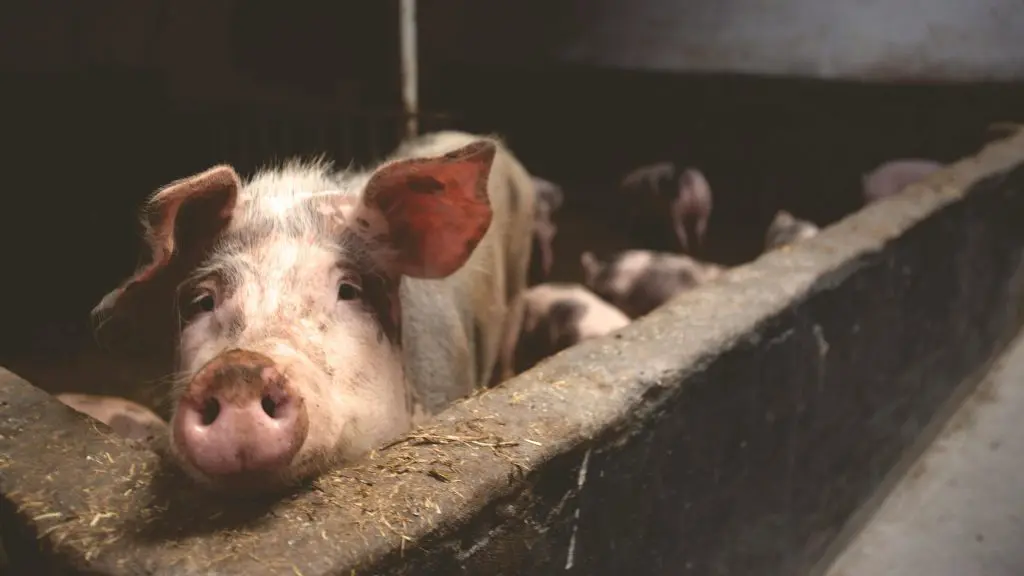
A new report commissioned by the Wildlife Trusts and conducted by Cumulus Consultants has highlighted serious environmental concerns linked to the UK’s pig and poultry farming sectors. The study outlines how concentrated livestock farming is contributing to pollution, water quality issues, and habitat degradation across several parts of the UK. The Scale of Pig and […]
A new report commissioned by the Wildlife Trusts and conducted by Cumulus Consultants has highlighted serious environmental concerns linked to the UK’s pig and poultry farming sectors. The study outlines how concentrated livestock farming is contributing to pollution, water quality issues, and habitat degradation across several parts of the UK.
The UK pig and poultry industry is vast. Each year, the country breeds, raises, and slaughters around 11 million pigs and 1.1 billion chickens, alongside maintaining an egg-laying flock of around 40 million birds, which produce approximately 12 billion eggs. While the industry is spread nationwide, certain regions are identified as pollution hotspots due to the high concentration of intensive farming units.
The main environmental impacts that the report finds include:
The scale of manure produced is significant, estimated at 10.4 million cubic metres annually, equivalent to 4,160 Olympic-sized swimming pools. This waste contains high levels of nitrogen and phosphorus, nutrients which are difficult to manage sustainably. When applied to farmland beyond the soil’s absorption capacity, these nutrients run off into rivers and water bodies, causing pollution that harms aquatic life and ecosystems.
The report estimates that 520,000 to 580,000 hectares of UK farmland, 34% to 38% of the country’s total wheat crop, is used to produce feed for pigs and poultry. These feed crops often rely on fertilisers and pesticides, which pose additional risks to wildlife and habitats through chemical runoff and degradation of biodiversity.
The environmental pressures are particularly acute in areas with dense concentrations of livestock. For instance:
In Breckland and South Norfolk, 61% of the farmed area would be needed just to spread manure sustainably.
In England, 30% of pig farms are located in Yorkshire and Humberside, while 28% of poultry holdings are found in the Midlands, with Lincolnshire hosting one-eighth of the broiler flock.
In Wales, 56% of the poultry population is concentrated in Powys.
In Northern Ireland, two-thirds of pig holdings are found in just two council areas: Armagh City, Banbridge and Craigavon, and Mid Ulster.
Although environmental regulations apply to housing for pig and poultry farms, many operations fall outside current permitting rules, especially smaller pig holdings. This limits the ability of regulators to manage pollution risks effectively. Even where farms do fall under regulation, not all are adopting best practices, as shown by ongoing pollution problems in areas like the River Wye catchment.
A key finding of the report is that the environmental costs of producing animal feed, such as pesticide use and land take, are not currently included in regulatory frameworks, despite being a major contributor to the sector’s overall environmental footprint.
The Wildlife Trusts argue that solutions should not solely fall on farmers, who already face significant financial and operational pressures. Instead, they call on the government and the industry to support a shift toward a less polluting, more integrated farming system. This would help improve water quality, protect biodiversity, and support the UK in meeting its legally binding nature recovery and climate targets.
Barnaby Coupe, Senior Land Use Policy Manager at the Wildlife Trusts, said:
“It’s clear that the significant impacts of pig and poultry production in the UK extend well beyond the intensive farming units themselves, and should leave us in no doubt that further action is needed to address the risks of environmental harms.”
He stressed the need for:
Nutrient management action plans
Updated permitting rules
Collaborative solutions involving both government and supply chains
A spokesperson for the Department for Environment, Food & Rural Affairs (Defra) responded:
“We share the public’s concern about the health of our waterways and are committed to cleaning up our rivers and cutting down on agricultural pollution. We have updated our guidance on the farming rules for water to cut run-off into waterways and doubled funding for Environment Agency farm inspections to drive compliance and support sustainable farm businesses.”
This new report provides a comprehensive and data-driven look at the wider environmental impacts of pig and poultry farming across the UK. It shows that the effects go far beyond farm boundaries, encompassing feed production, regional land pressures, and regulatory oversight gaps. By recognising these challenges and supporting sustainable transitions, the UK has an opportunity to protect its environment while maintaining a productive agricultural sector.
At All-Ireland Sustainability, we’re committed to building a greener, fairer island, together. Stay informed on the latest environmental initiatives, community action, and policy developments shaping sustainability across Ireland, North and South.
👉 Sign up for our newsletter today and be the first to hear about upcoming events, expert insights, and ways to get involved.
Whether you’re a seasoned advocate or just starting your journey, new members are always welcome.
Subscribe now and be part of the All-Ireland Sustainability network.